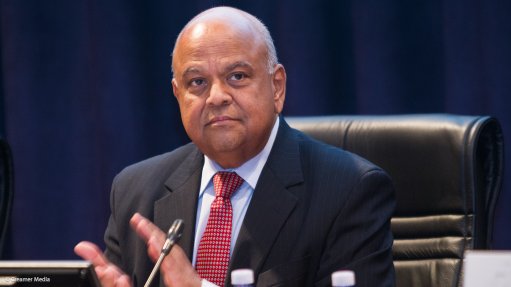
Finance Minister Pravin Gordhan
Photo by: Dylan Slater
The revised Preferential Procurement Regulations, which were gazetted on January 20, have introduced prequalification criteria, which allow the advancement of selected categories of people by limiting competition.
The restriction will limit the inclusion of well-established companies, unless they meet further requirements of subcontracting to these groups should they be successful.
“The release of the revised regulations will use public procurement as a lever to promote socioeconomic transformation, empowerment of small enterprises, rural and township enterprises, designated groups and promotion of local industrial development,” Finance Minister Pravin Gordhan said on Tuesday.
“This is in line with the current dialogue on inclusive economic growth in South Africa,” he noted.
The regulations were first promulgated in 2001 and revised in 2011, before the latest revision this year.
The regulations will see government set aside 30% of appropriate categories of State procurement for procurement from the groups mentioned by Gordhan.
Further, the revisions acknowledge that while high-value tenders in the region of R30-million and above tend to be awarded to established companies, owing to economies of scale and affordability, leaving out aspiring businesses, the revised regulations require all those with the ability to deliver the required service to demonstrate the element of subcontracting to the categorised groups at a tendering stage.
The revisions also tackle discontent from categorised groups, who felt that the threshold of R1-million was too insignificant for them to grow to the same level as established companies. Current regulations have increased to R50-million. This now gives the smaller companies greater chances to compete in the economy in a meaningful way.